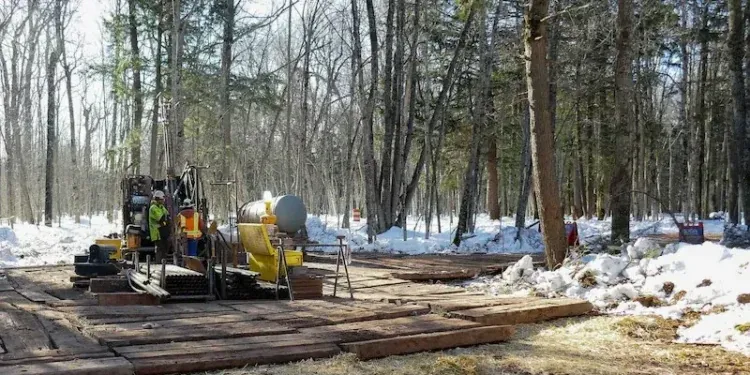On March 26, Governor Gretchen Whitmer declared that the Michigan Strategic Fund Board had approved the $50 million Copperwood Mine development in the western Upper Peninsula.
That day, the governor announced plans to bring the supply chain back to Michigan by highlighting “380 high-wage, family-sustaining jobs” that would “help supply copper material critical to the mobility and clean tech industries.”
State Representative Dave Prestin (R-Cedar River) claims to know why the $50 million was not moved in the Michigan Senate Appropriations Committee earlier this summer. The Highland Copper project, which was supposed to bring in $15 million annually in tax revenue for the area, has not proceeded.
As for Copperwood, Prestin told RRN News, “It’s what happens with a lot of these projects: they get highjacked by the environmental community, nationally.” “We’re not even discussing significant figures within the U.P. A nationwide call to action has resulted in a deluge of “Stop the Mine” messages for these representatives. Emails are arriving in their inboxes from all throughout the nation. Almost none of the 45,000 emails I received as of the last time I heard them were from the U.P.
Since 2018, when a feasibility study and exploratory drilling were carried out, work has been ongoing at this location. Numerous municipal and county governments, the MEDC, the Whitmer Administration, and the influential organization for economic development, Invest U.P., have all expressed support for it.
According to Prestin, jobs in the western United Province are “desperately needed,” and he is “confident” that this project will eventually proceed.
However, Tom Grotewohl—an anti-mining campaigner who started the organization “Protect The Porkies”—says he is happy that the proposal is being closely examined.
Grotewohl continues, saying that his organization would be against any kind of development—not only mining.
Even if it were a Wal-Mart, we would be against any industrial activity there, Grotewohl stated to RRN News. We are speaking of the area directly adjacent to Lake Superior, the North Country Trail, Black River Harbor, and the Porcupine Mountains State Park. This is a location rich in water, but alas, there is a history of mining contamination. As of right now, this area is undeveloped. There’s no grid for electricity. Cell service is unavailable. It’s just not appropriate for any kind of industrial work. This is just basic sense; it is not an ecological viewpoint.
What about the jobs that residents in that area of the Upper Peninsula need? we questioned Grotewohl.
According to research by an economic advisor to former President Barack Obama, “The Upper Peninsula is impoverished because it built itself upon boom-and-bust industries like mining.” Eighty-nine percent of copper sulfide mines cause local residents to lose money. People would profit for a few years, but this is usually the case, and the longer a mine is in operation, the more detrimental effects would outweigh the benefits. Additionally, the corporation that would be exporting Michigan copper is Canadian.
The Gichigaming Water Walk, which will take place on September 14 in the western Upper Peninsula, is being organized by the group “Protect the Porkies.” Participants will walk 31 miles from the Montreal River, which is located in the town of Ironwood near the Michigan/Wisconsin border, to the shore of Gichigami (Lake Superior), which is located in the Presque Isle Scenic Area of the Porcupine Mountains.



